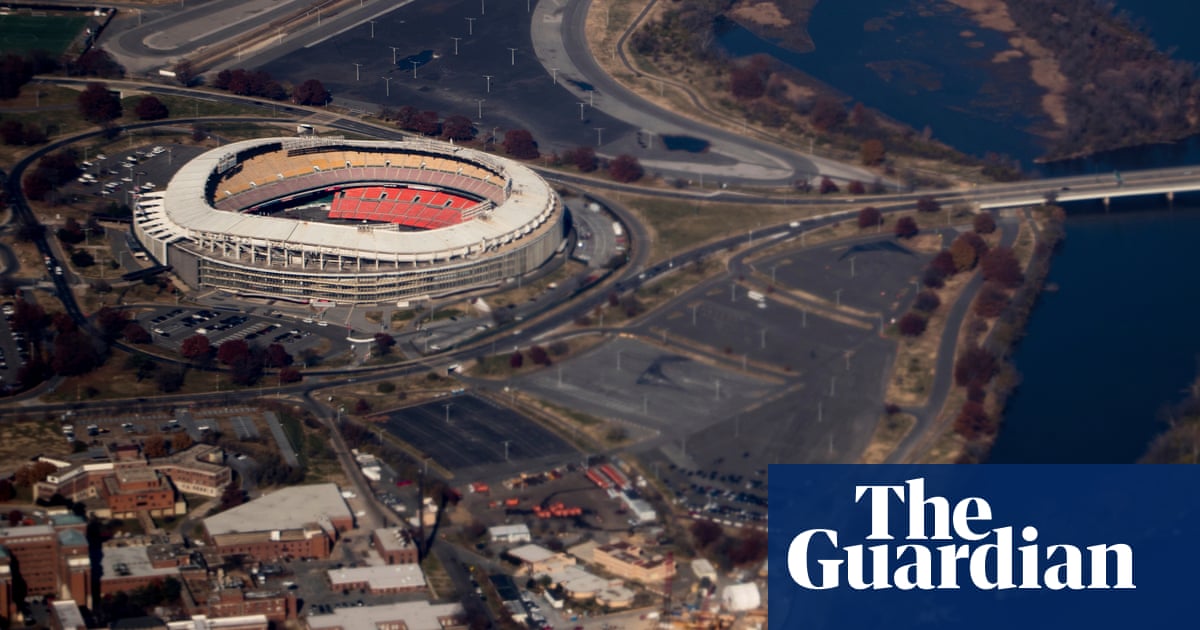The recent announcement regarding the agreement between the NFL's Commanders and the Washington D.C. government to build a new stadium reflects multiple layers of community engagement, financial implications, and political maneuvering. The deal, valued at nearly $4 billion, signifies not just a return of the Commanders to the capital but also aims to reshape the surrounding area with additional housing and recreational spaces.
Community Sentiment and Engagement
The news is framed in a manner that evokes nostalgia and pride among local fans, especially with the involvement of former player Joe Theismann, who reinforces the emotional connection to the original RFK Stadium. This narrative aims to rally community support by emphasizing the historical significance of the team and its local roots. The strategic choice of language suggests an intention to create a sense of urgency and collective excitement around the project, encapsulated in Theismann's rallying cry to “bring the Commanders home.”
Financial Dynamics
The financial breakdown reveals that the Commanders will contribute $2.7 billion, with the city investing approximately $1.1 billion. This allocation of public funds raises questions about local priorities and the potential economic impact on taxpayers. While the stadium might stimulate economic activity, there is a risk that it diverts resources from other essential city services. The emphasis on the financial commitment from the Commanders could be aimed at minimizing public backlash regarding the city's investment.
Political Maneuvering
The passage of the bill transferring RFK Stadium land to D.C. indicates the influence of lobbying efforts by team ownership and NFL executives. This political backdrop suggests that the deal may not only serve as a sports investment but also as a strategic move to enhance the political capital of those involved. The timing of the announcement, alongside the visuals of local officials celebrating the deal, indicates a calculated effort to present a united front and a positive image to the public.
Manipulative Aspects
While the announcement is celebratory and optimistic, it may gloss over potential downsides, such as the implications for local residents, especially those in economically disadvantaged areas. The narrative may downplay concerns regarding gentrification or displacement that can accompany such large-scale developments. The language used in the announcement seems designed to steer public perception towards favorable views of the project, suggesting a degree of manipulation in how the information is presented.
Overall Trustworthiness
The article presents factual information regarding the agreement and its financial aspects, making it largely reliable. However, the framing and emphasis on the positive aspects of the deal, coupled with the lack of critical analysis on potential downsides, raise questions about the completeness of the narrative. The alignment of interests between the city officials and the franchise owners also suggests a need for scrutiny regarding the long-term impacts of this deal on the community.
Economic and Political Implications
This stadium deal has the potential to influence local economics by creating jobs and attracting visitors, but it also poses risks related to public funding and urban development. Politically, it may bolster the standing of those involved in the deal while drawing attention away from other pressing issues within the city. The project could resonate more with sports enthusiasts and local business advocates than with community members concerned about housing and social equity.
Supporter Demographics
The announcement is likely to attract support from sports fans, local business owners, and community members who view the stadium as a potential economic boon. Conversely, it may face skepticism from residents worried about the implications for local housing and social services.
Market Impact
In terms of stock market implications, companies involved in construction, real estate, and local businesses may see fluctuations in stock performance related to the announcement. Additionally, the NFL's overall brand could experience a boost, potentially impacting franchises and associated businesses within the league.
Global Context
While the announcement is primarily local, it reflects broader trends in sports economics and urban development that resonate globally. The revival of urban areas through sports facilities is a theme seen in many cities, connecting this news to ongoing discussions about the role of sports in community development.
Overall, the article presents a compelling narrative about the return of the Commanders, but it is essential to approach it with a critical mindset, recognizing both the potential benefits and the underlying complexities of such a significant investment.
